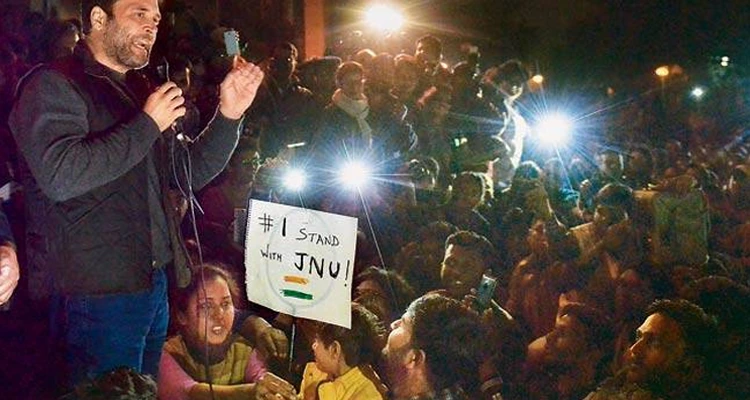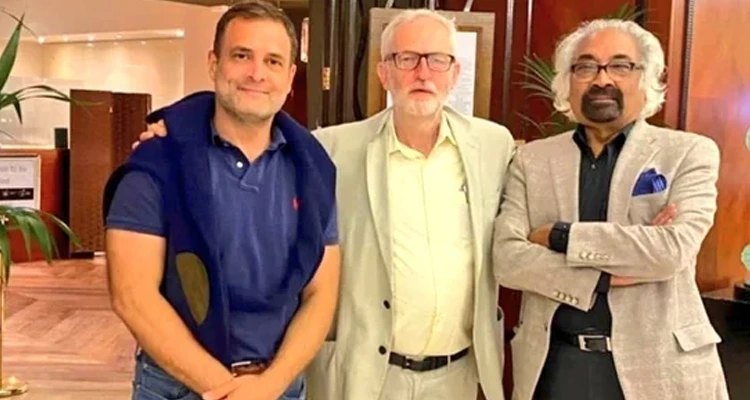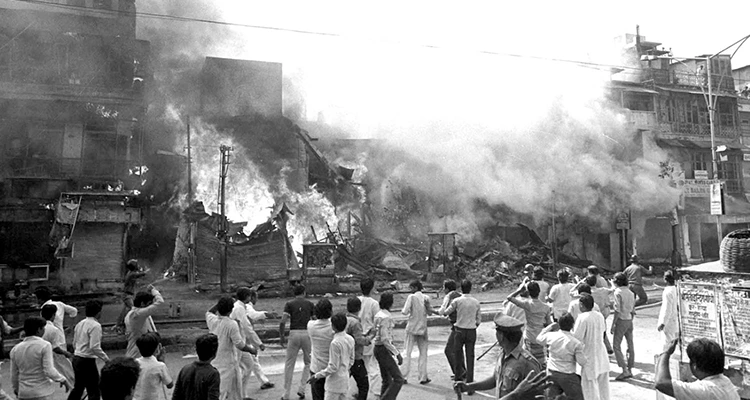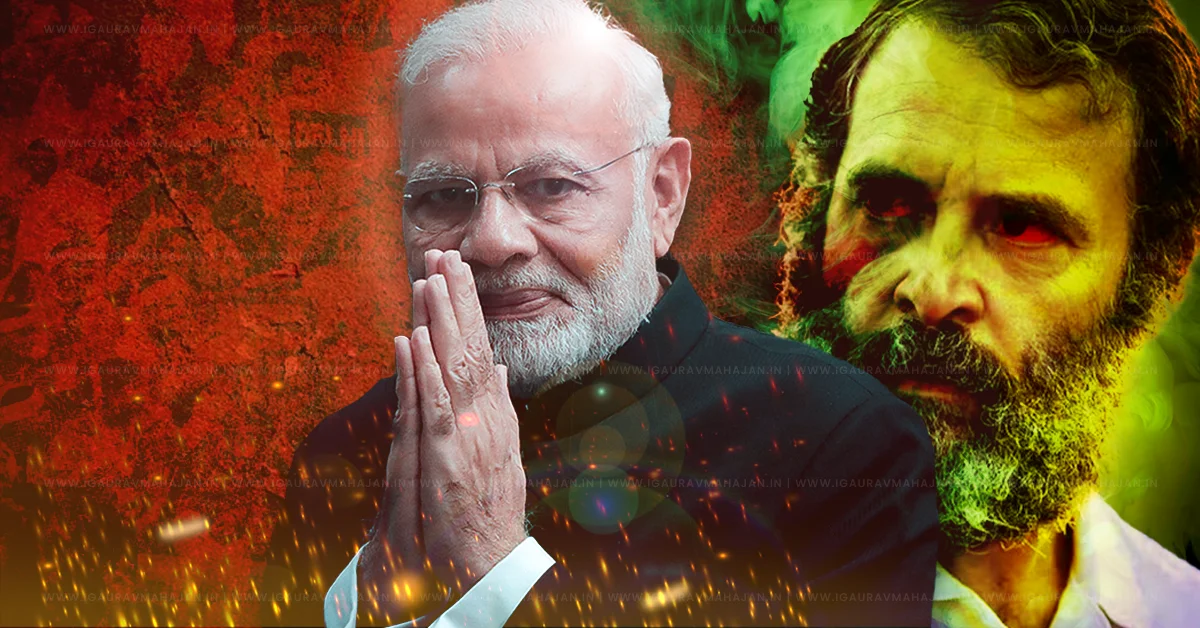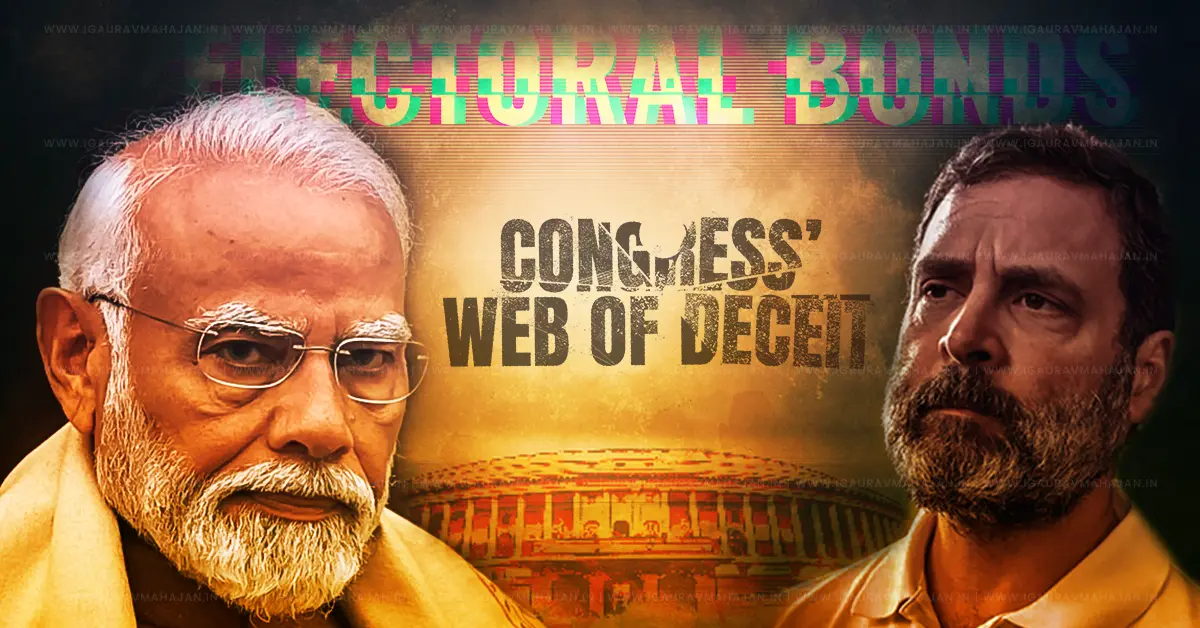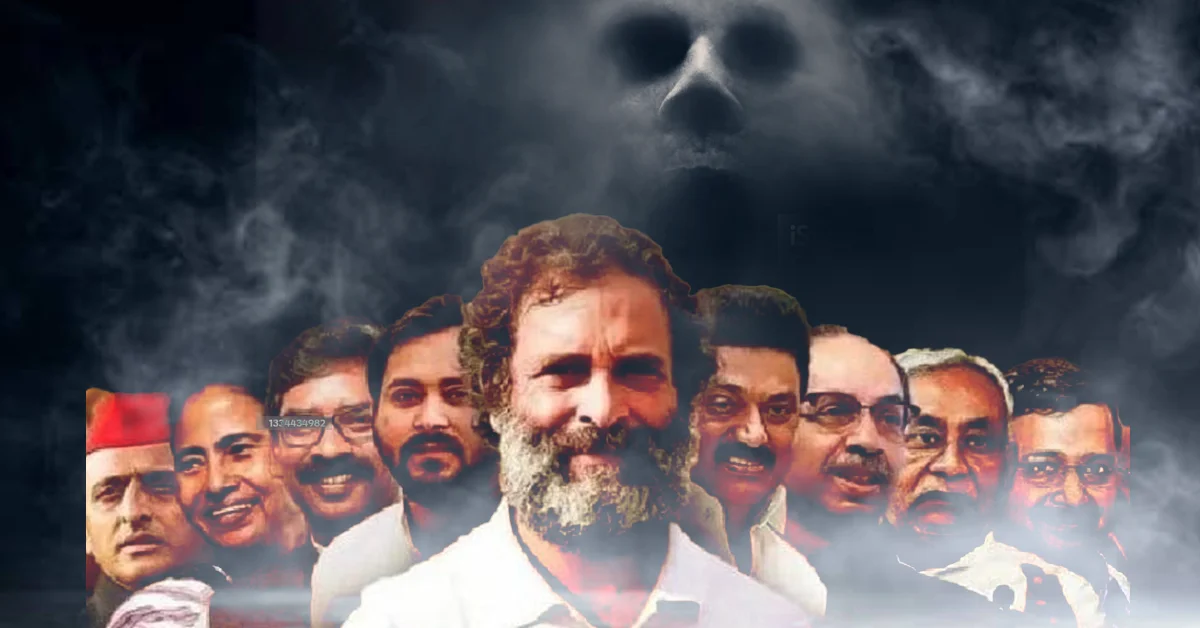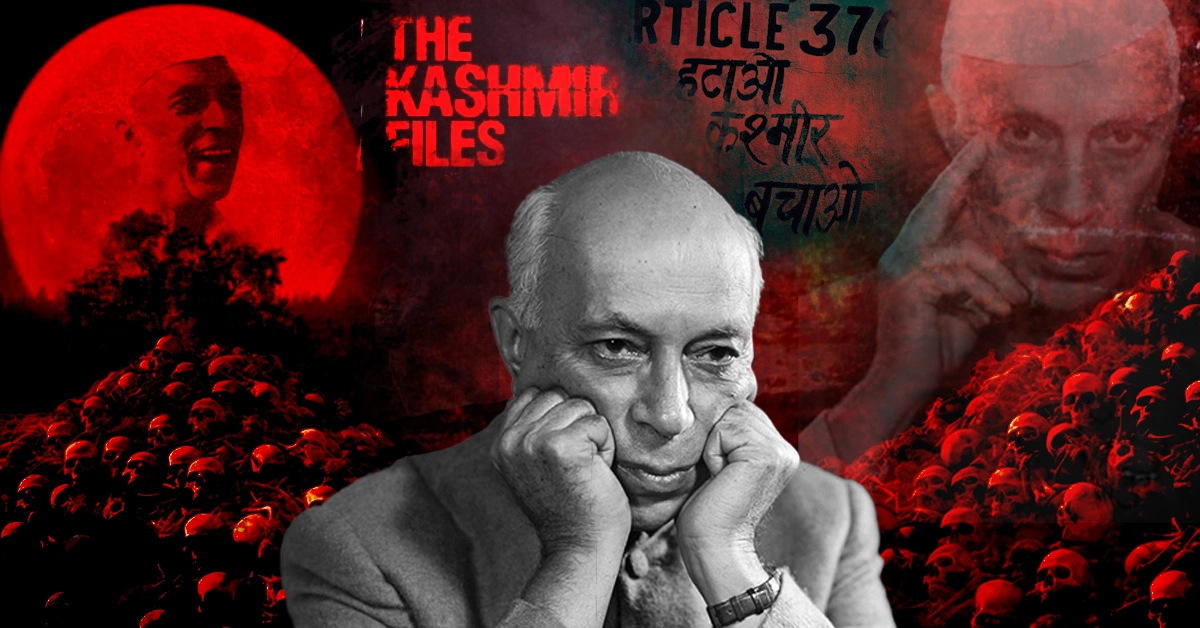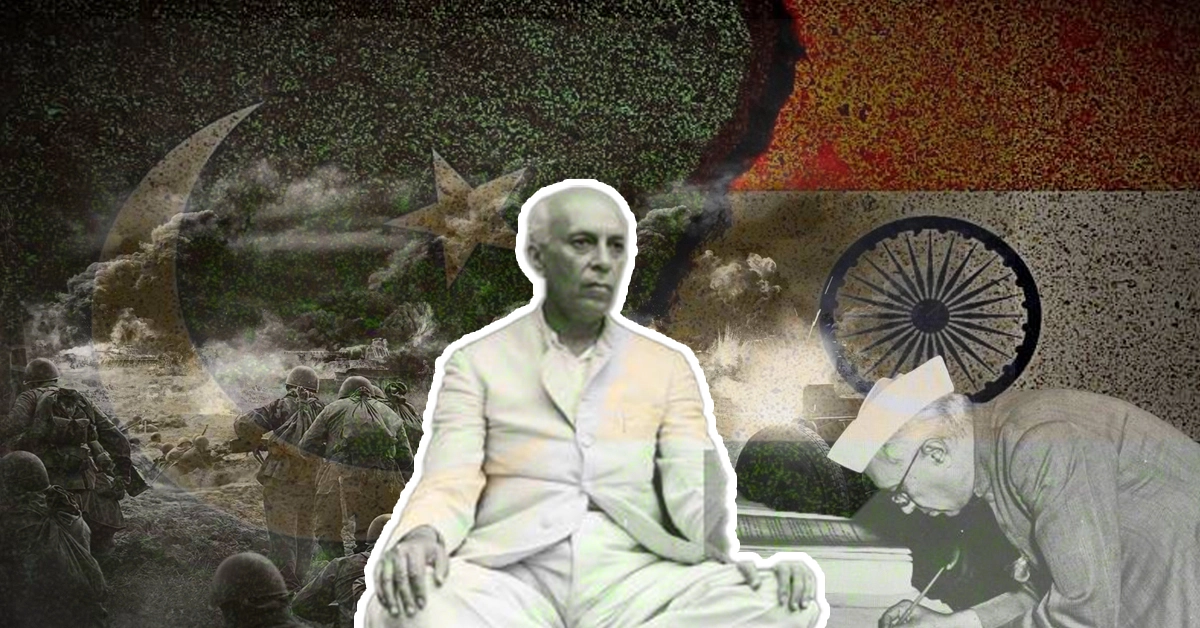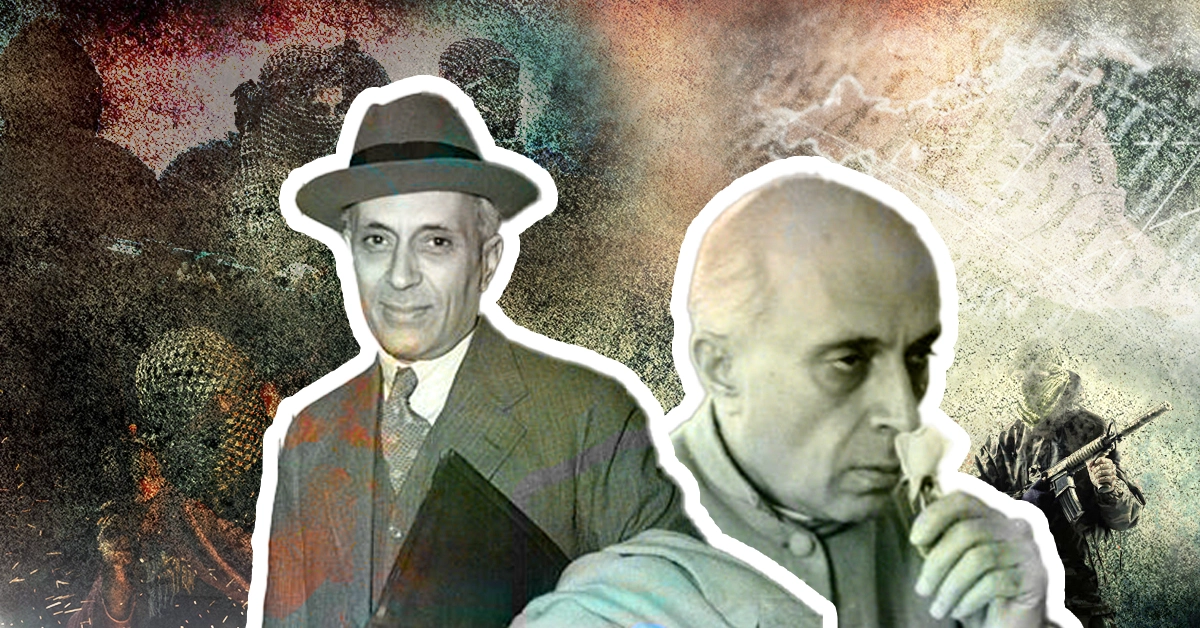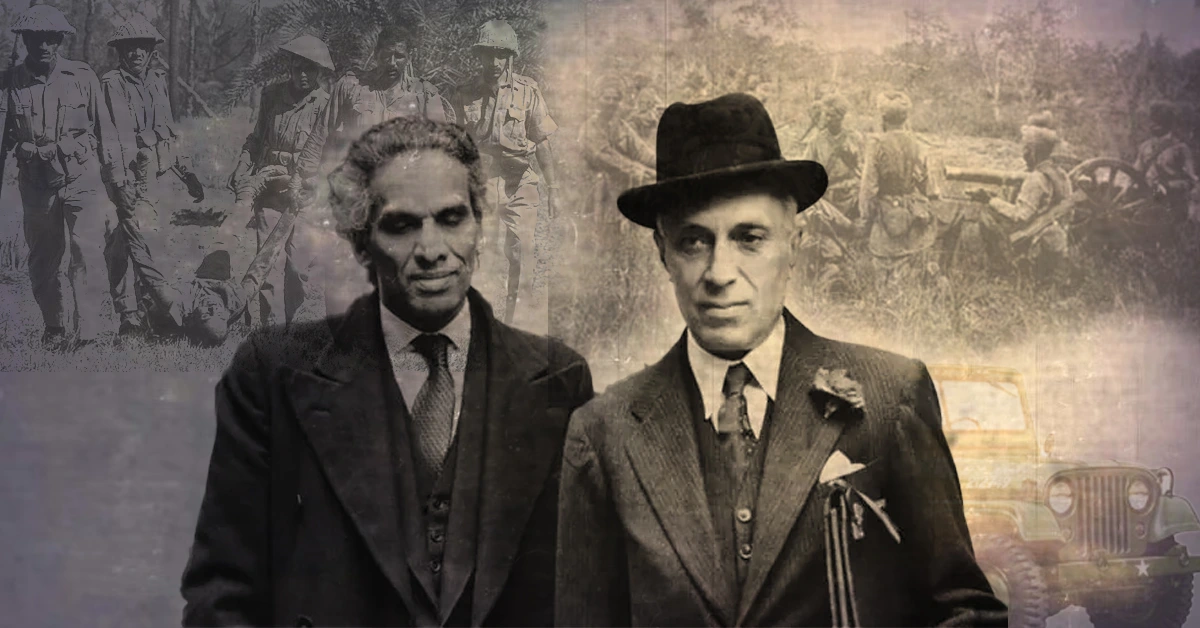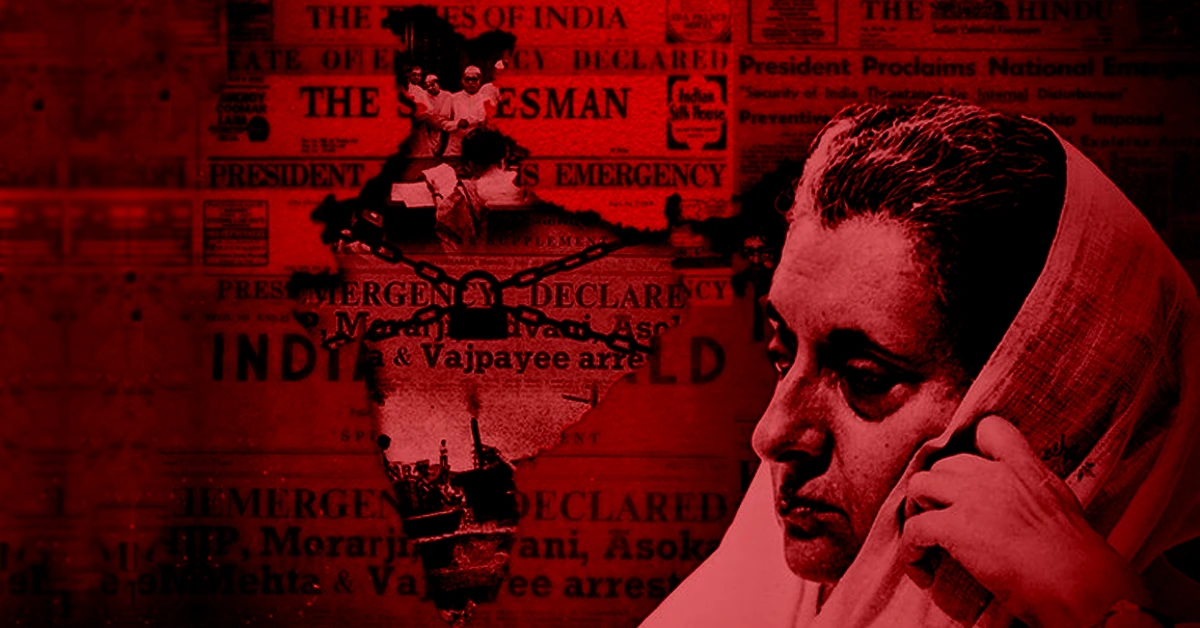India stands transformed under Modi’s leadership, achieving milestones in infrastructure, security, and economic growth once neglected under Gandhi rule. Yet, persistent pessimism blinds us to this progress. To secure India’s future, voters must embrace decisive leadership and reject divisive dynasties.
B̶h̶a̶r̶a̶t̶ ̶J̶o̶d̶o̶: A Nation to Divide
Rahul Gandhi’s Bharat Jodo Yatra is an attempt for starting a new divisive agenda of North vs South, one state vs the other, and importantly, states vs the BJP government at the center. It is an attempt to loosen the bolts of national unity.
Read Time: 11 minutes
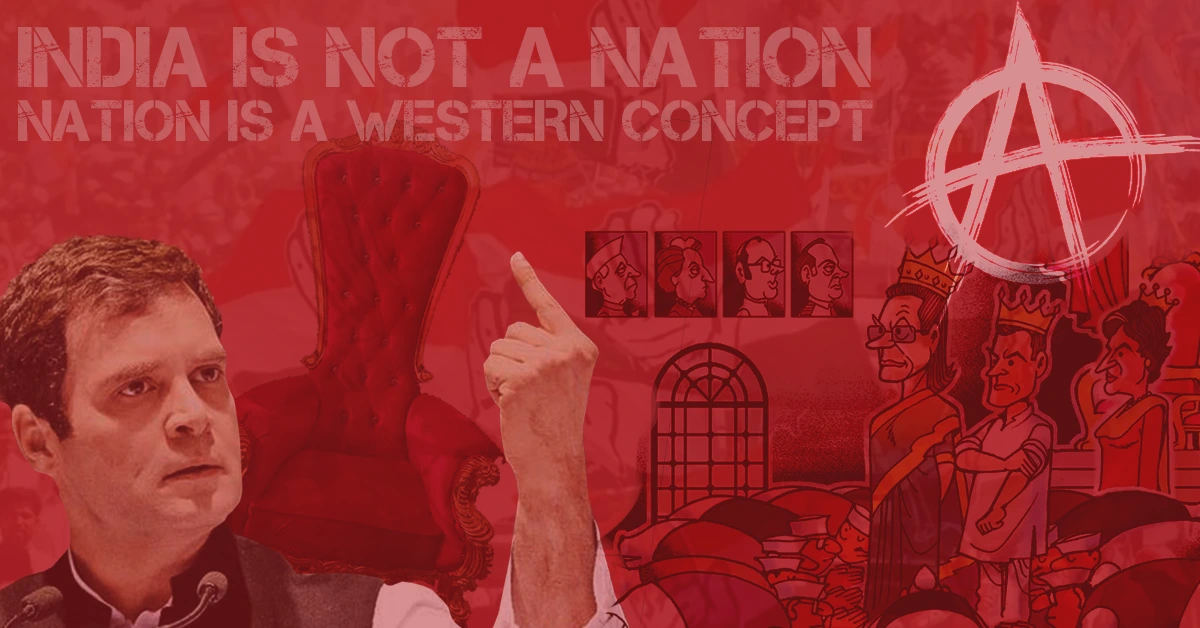
click play to listen to the article
उत्तरं यत्समुद्रस्य हिमाद्रेश्चैव दक्षिणम् ।
वर्षं तद् भारतं नाम भारती यत्र संततिः ।।
— Vishnu Puran
The country that lies north of the (Indian) ocean and south of the snowy mountains (Himalayas) is called Bhāratam; there dwell the descendants of Bharata.
On August 1947, when the British finally left, the subcontinent was partitioned into two independent nation states: India and Pakistan. Immediately, there began one of the greatest migrations in human history, as millions of Hindus and Sikhs headed from the Muslim-majority Pakistan towards India. Many hundreds of thousands never made it. Many hundreds of thousands were attacked, assaulted, raped. This was the final divide and rule legacy that the British left behind, or so we thought.
Divide and Rule:
Rahul Gandhi starting his Bharat Jodo Yatra from Tamil Nadu cannot be a mere coincidence. “You will never, ever in your entire life, rule over the people of Tamil Nadu. It can’t be done.”, Rahul Gandhi had once bawled. Rahul Gandhi’s Bharat Jodo Yatra is an attempt for starting a new divisive agenda of North vs South, one state vs the other, and importantly, states vs the BJP government at the center. It is an attempt to loosen the bolts of national unity. What stands out like a sore thumb in Rahul Gandhi’s Bharat Jodo Yatra, is his speech about India being a “Union of States” and not a nation — a concept whose roots lie in a 1943 document titled, Pakistan and National Unity, explicitly meant to justify Mohammed Ali Jinnah’s demand to carve Pakistan out of the undivided India. The basis of this justification hinged on the specious and treacherous argument that India was never one united country but a collection of kingdoms. A few days back Rahul Gandhi was screaming “India is not a nation but a union of states”, and today he’s on “Bharat Jodo Yatra”? What is Rahul Gandhi trying to achieve by all this? Since 2014, the Congress hasn’t managed to achieve anything significant. They haven’t been able to keep their party together, several high-profile leaders have deserted the party, primarily because of the whims and fancies of the “young” prince — Rahul Gandhi. Is the party then, in response, dusting off an old trick in its playbook to see if it still works? The trick that the Britishers perfected to impact us till date — the trick of divide and rule?
India that is Bharat was not born on 15 August 1947 but it is a continuous flow of civilization since at least last 8,000 years as per scientific verified documents. But the communist doctrine that influenced Rahul Gandhi’s great grandfather, Jawaharlal Nehru, which declares that India would never have been a nation but for British and deliberately asserts that India was made of multiple nationalities, seems to have influenced Rahul Gandhi as well. It is as if the British were replaced by a dynasty whose membership still has the DNA of a colonial power. A dynasty whose members are so out of touch with the New India that they constantly and consistently try to pit Indian states against Central government by invoking the demon of regional divide.
A Nation to Divide:
Disinherited from what he thinks should have been his family’s rightful entitlement, Rahul Gandhi is sulking for being rudely thrown out of the power circles. Most galling for him is that the challenge is from a natural-born leader, a man without a family heritage in politics, who secured a massive mandate for his party on the strength of his own name, a man profoundly proud of his rich cultural heritage. A man whose personal popularity nationwide refuses to slide despite every effort to trigger bitterness against him, inasmuch as the popularity of the lawmaker, who has migrated from Amethi to Wayanad refuses to go up.
It is against this backdrop that Rahul Gandhi has set out on an insidious and an invidious venture. Nothing good will come of it. The Congress party, which is already on the brink of being non-existent is facing a bankruptcy of ideas and has officially resorted to divide and rule. Its strategy is to push for an agenda where it’s easier for one to be identified as a member belonging to a particular state than as an Indian. India is being ruptured at the core.
Even in the past, the Congress hasn’t shied away from taking positions detrimental to the unity of the nation. It was under Congress governments that various secessionist movements erupted with alarming regularity — the Naxals, Maoists, virulent Tamil separatist movements, the Khalistanis, and countless insurgencies in the North East. That covers about 60 percent of the whole Indian landmass.
Indira Gandhi invoked Article 356 to topple elected state governments. She imposed the draconian Emergency, committed excesses, trampled on individual liberty, gagged the media and jailed opponents. Indira Gandhi was followed by Rajiv Gandhi, who condoned the massacre of thousands of ordinary Sikhs in retaliation for the assassination of his mother in 1984.
Those with memories that go back a few years will recall, that the Congress led by Sonia Gandhi wasn’t really interested in backing a caretaker regime under Atal Bihari Vajpayee during the Kargil conflict in the summer of 1999. Similar attempts to discredit the BJP government for the sake of petty political dividends were made after the Kandahar plane hijacking.
Pic(from left): 1-Rahul Gandhi at JNU after a student gathering there saw seditious slogans being raised against India and in support of the hanged terrorist Afzal Guru. 2-Rahul Gandhi went to meet UK MP Jeremy Corbyn in London. Jeremy Corbyn is known for his anti-India views. He had sought UN intervention in Kashmir after the abrogation of Article 370. 3-Anti-Sikh violence in west Delhi on 1 November 1984, a day after Indira Gandhi was killed. About three thousand Sikhs lost their lives in the capital in the violence. 4-Prashant Bhushan who is supporting the Bharat Jodo Yatra had earlier moved a plea before the Supreme Court for staying execution of 1993 Mumbai blasts accused Yakub Memon. He later termed the day of Yakub Memon’s hanging as a sad day for Indian democracy.
Supporting Urban Naxals:
Without dwelling far back into the past, even a cursory glance at Congress’ post-2014 strategy is enough to give clarity on their divisive politics. Congress stalwart, Mani Shankar in Pakistan had asked Pakistan to help the Congress party dislodge PM Modi and install Congress back in the seat of power. With the sole aim of grabbing power, without hesitation, without giving a damn about the country, the Congress has the capacity to sink too low in breaking protocols of basic decency. Example of Modi’s visit to Punjab is enough.
Today, Rahul Gandhi’s Bharat Jodo Yatra is supported by “intellectuals” whose past activities reveal that most of them share common hatred for Modi and the idea of a New India. Yogendra Yadav, notoriously known as “ichhadhari pradarshankari” (wishful protester), for his participation in anything and everything anti-Modi, is seen supporting Rahul Gandhi. Earlier, Yogendra Yadav came out in support of those who were arrested in the Elgar Parishad Maoist Link Case, which included a conspiracy to assassinate Prime Minister Narendra Modi. He also supported the protests against the Farm Laws. BG Kolse Patil, known for his Brahminical tirade and one of the organizers of the Elgar Parishad, is another “intellectual” supporting the yatra. In a 2020 video, he is seen hurling abuses at Narendra Modi and is known to have let Umar Khalid, now jailed in the Delhi riots case, stay at his home. Aruna Roy, a regular face in events seeking the ouster of the Modi government, and a known anti-India activist is also supporting this campaign. Syeda Hameed, who supported the Shaheen Bagh sit-in protests against the CAA and another supporter of Umar Khalid is also seen supporting Rahul Gandhi [1]. Prashant Bhushan, who wanted a referendum on Kashmir to decide whether Kashmir can be a part of India [2], and who thought that terrorist Yakub Memon’s hanging was a sad day for Indian democracy [3], is another proponent of Rahul Gandhi’s Bharat Jodo Yatra.
Earlier, Rahul Gandhi rushed to support the ‘tukde tukde’ brand of politics at Jawaharlal Nehru University. The student gathering there saw seditious slogans being raised against India and in support of the hanged terrorist Afzal Guru. Among the slogans reportedly raised were the following: “Bharat ki barbaadi tak, jung rahegi”; “Tum kitne Afzal maroge, ghar ghar se Afzal niklenge”; “Kashmir ki azaadi tak, jung rahegi, jung rahegi”, and the gold-standard slogan for all India-hating mindscapes, “Pakistan zindabad”. None of this appeared to have upset Rahul Gandhi in the least.
Congress Mukt Bharat:
Since 2014, Rahul Gandhi and the Congress has attempted to do battle on every available fault-line in Indian society. In his desperation to see Modi on his knees, Rahul Gandhi’s statements are constantly laced with anarchism intended to incite people to create anarchy throughout the country. India might have presumed that the enemy always lies on the other side of the border. Romanticized beyond reproach by the so-called Lutyens intelligentsia, the threat to India from within its own borders has been ignored for far too long. This enemy within is more insidious than detractors outside. It carries a patina of credibility by virtue of being Indian. Cloaked as the Lutyens ecosystem, these Congress’ durbaris are the internal saboteurs playing at the hands of Rahul Gandhi, whose intelligence quotient is restricted to a shoal of warbled thoughts and witless prattle.
In the world of Rahul Gandhi and his remaining sycophants, Bharat Jodo Yatra might be Rahul Gandhi coming of age — for the 3483th time, but the country’s common people are sick of the Congress. They are tired of the balloon of divisiveness that Congress dumps on them to grab power. For a fast-growing aspirational middle class, new wealth creators, start-ups providing unheard of opportunities for entrepreneurs — for the New India, the Congress is no longer seen as the vehicle to address their concerns. As the Congress stands defeated, Rahul Gandhi must realize that the New India is not enamored of the idea of dynastic leadership. To them, Rahul Gandhi smacks of someone who has benefitted from his pedigree with nothing to boast of as his personal achievement and who has been singularly clueless about the radical changes on the ground that have impacted the Congress’ political fortunes.
The New India will not let the dying Congress shift the discussion from PM Modi’s ‘Growth and Development’ agenda towards a futile and deluded, not to mention negative and destructive agenda, of a man caught in a time warp. This country is supreme, immortal and invincible.
Tags: Congress, Urban Naxals, Nation
Share this article:
Leave a Comment
Recommended For You
Regardless of what Congress led narratives may claim, the reality is clear: Narendra Modi has won. Despite facing an onslaught of deceit and malice from the Congress, Modi defied all odds and secured a healthy majority and emerged victorious!
Electoral Bonds represented a pivotal shift towards transparency in political financing, aiming to curb the influence of black money in India's democratic process. However, the Supreme Court's decision to invalidate them not only undermines efforts to clean up the system but also serves as a lifeline to the entrenched culture →Read More →
The rejection of invitations for Prabhu Shri Ram's Pranpratishtha ceremony at Ayodhya Dham by members of the I.N.D.I alliance is not unexpected. Their animosity towards Sanatan Dharma has been evident on numerous occasions. An article outlining instances where they have disparaged, insulted, and defamed the Sanatan tradition.
Nehru's ego-driven decisions, epitomized by Articles 370 and 35A, unleashed a legacy of discrimination and strife in Jammu & Kashmir. This narrative, marked by betrayal and separatism, inflicted profound suffering on citizens, especially the displaced Kashmiri Pandits. Modi's historic move in 2019, dismantling Article 370, signaled a transformative shift towards →Read More →
In the aftermath of partition, Nehru's catastrophic decisions on Kashmir showcased a stunning lack of foresight and spine. His pathetic reliance on British advice and the premature ceasefire exposed a feeble leader prioritizing personal agendas over national interests. Nehru's betrayal of minority concerns, particularly the callous dismissal of Kashmiri Pandits, →Read More →
In 1947, Nehru's meddlesome actions in Jammu and Kashmir marked a colossal blunder, prioritizing personal agendas over India's security. His reckless promises, callous disregard for Maharaja Hari Singh's pleas, and the disastrous ceasefire in 1948 allowed Pakistan to seize strategic regions, paving the way for future conflict and the rise →Read More →
Nehru's abysmal leadership, marred by a servile attitude toward British interests, a blatant disregard for Maharaja Hari Singh's desperate pleas, and a criminally negligent delay in responding to the Pakistani invasion, inflicted irreversible damage on India. His self-serving actions spawned doubt, separatism, and bloodshed, creating a regrettable and tumultuous legacy →Read More →
Speaking out against Nehru's lingering influence is essential. His reign planted the seeds of corruption, with entitlement overshadowing merit and dynasty prevailing over democracy. The parallel between Nehru's era and Sonia-Rahul Gandhi's is uncanny. The thread of corruption persists, a sinister legacy passed through generations.
Unveiling the grim reality of Indira Gandhi's Emergency rule, this gripping account exposes the rampant abuse of power, censorship, and state-sponsored atrocities that plagued India. From the suppression of dissent to the curtailment of civil liberties, explore the far-reaching consequences of this dark chapter in the nation's history.

